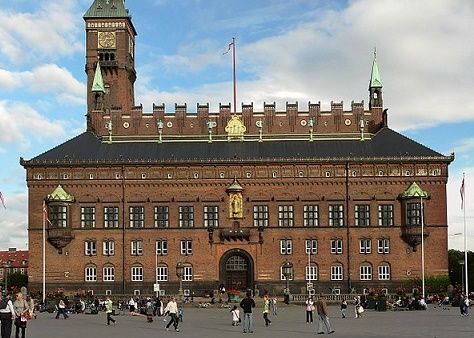Copenhagen finds itself in a global competition to attract top talents from around the world.
At the same time, we face the challenge of many international citizens who move here feeling excluded from the city’s communities and leaving prematurely.
Challenges such as a lack of jobs, excessive bureaucratic obstacles, and a general need for better reception experiences persist.
We know this because Copenhagen Municipality conducted a barrier mapping for international citizens in 2023.
Three New Initiatives in 2025
That’s why it’s encouraging that, starting January 1, 2025, we’ve found funding for concrete solutions.
From the new year, a digital welcome package will be introduced, along with a neighborhood-based welcome ambassador program, and additional funds will be allocated to strengthen International Citizens Day.
The overarching focus is to ensure that new residents feel more welcomed—a major issue identified in the mapping.
Moving forward, it will be easier to navigate the city’s cultural and leisure offerings and find social communities. Kudos for that!
But ambitions must go further if we truly want to embrace international citizens. The barrier mapping revealed 22 obstacles, identified with input from stakeholders like Dansk Metal, the Confederation of Danish Employers (Akademikerne), FOA, and the University of Copenhagen.
We Can Do Much More
If we’re serious about embracing international citizens, it must be clear that there’s much more to address.
There’s a housing shortage, insufficient capacity in international schools, difficulty finding jobs, and untapped potential in preparing SMEs to welcome international talents.
Additionally, there’s a need to ensure that children and accompanying spouses connect with others and become part of a network, for example, through local associations.
At the same time, obvious solutions are being highlighted. For instance, there’s a need for better communication.
Many existing resources are underutilized—for SMEs, this includes information about salary schemes and the positive list for skilled workers—but funding for communication efforts is lacking.
The Municipality of Copenhagen can also help more students find part-time jobs by employing international students. These are all low-hanging fruits.
The Debate Ahead
The upcoming local elections present an excellent opportunity to further embrace international citizens.
In the last election, I was the only candidate to host multiple English-language debate events—with packed venues.
These events provided opportunities to inform about political initiatives and hear international citizens’ hopes and dreams for Copenhagen.
These dreams revolve around the kind of society they wish to be part of, but many don’t yet know how to integrate into it.
However, this dialogue must occur continuously throughout the election cycle—not just in the year leading up to a municipal election.
Let’s ensure Copenhagen remains a city that doesn’t just talk about diversity but lives it.
*Emil Moselund is a member of Copenhagen´s City Council for the Social Liberal Party (Radikale Venstre)


